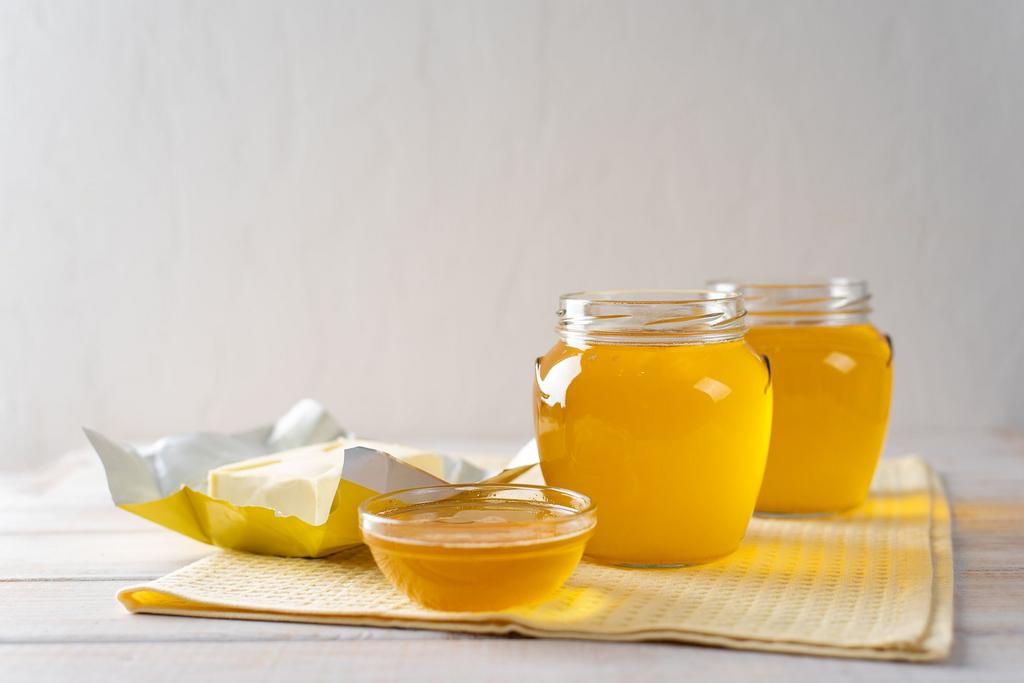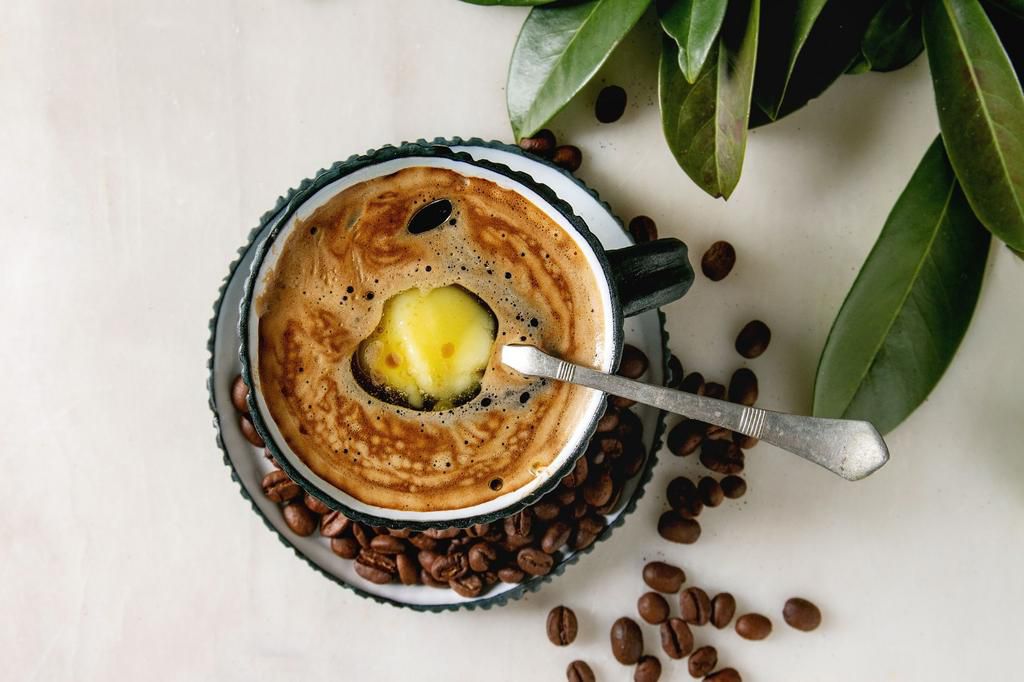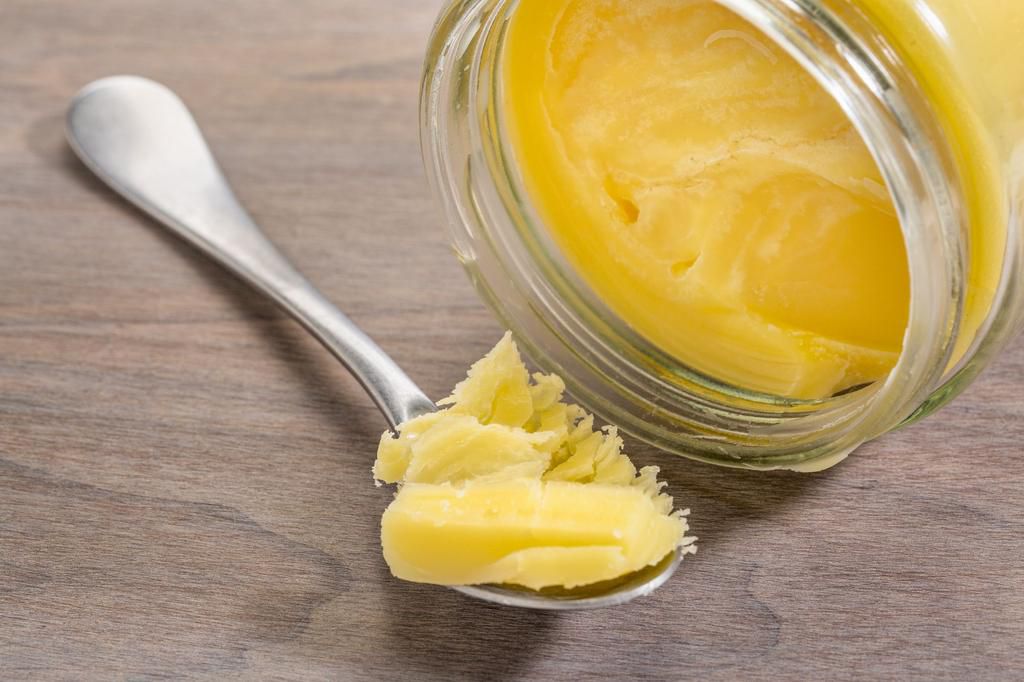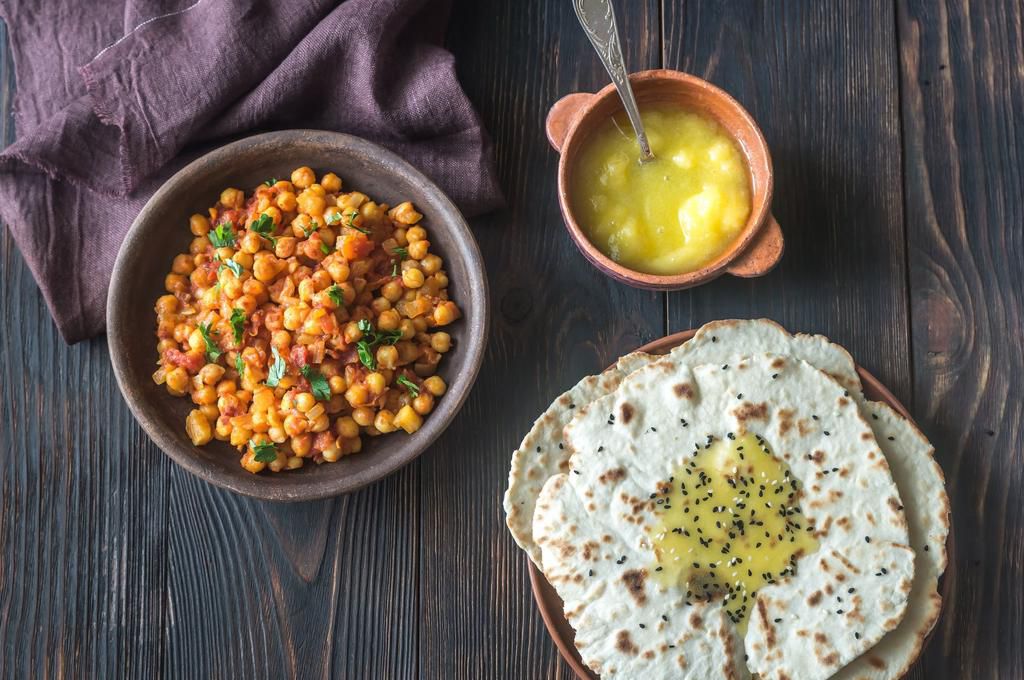Here’s Why Switching From Butter to Ghee Isn’t a Huge Deal
)
But what is ghee, exactly?
Think of ghee a type of clarified butter. For those of you thinking, "But what is clarified butter, exactly? lets take a step back.
Heat butter on the stovetop and youll see that the butter separates into two parts: white solids, which rise to the surface, and a more golden liquid, which settles toward the bottom.
Ghee is the golden liquid. The milk solids, discarded during the making of ghee, contain sugar lactose and also a protein called casein. This is why some people who are sensitive to lactose or casein can tolerate ghee, but not butter.
You typically find ghee alongside butter in the refrigerated section of the grocery store, although its stable at room temperature, which means it doesn't melt, and doesnt actually need to be refrigerated.
Some brands are making flavored varieties (turmeric, garlic, even chocolate) and also turning ghee into a cooking spray.
How Does Ghee Compare to Butter Nutritionally?

Heres what youll find in a 1 tablespoon serving of ghee:
112 calories, 13g fat, 0g protein, 0g carbohydrate (0g sugar, 0g fiber), <1mg sodium
And heres whats in the same size serving of unsalted butter :
102 calories, 12g fat, <1g protein, 0g carbohydrate (0g sugar, 0g fiber), 2mg sodium
So, as you can see, there's not that much of a difference.
Where ghee and butter do differ is nuanced and granular: They differ in their types of fatty acid. Ghee has more of the kinds of fats that dietitians like me tout as good for you: polyunsaturated fats. More specifically ghee has more of the omega-3 fats DHA and ALA.
So Does That Mean That Ghee Is Healthy?

That depends on which benefit you're looking to derive from eating ghee. For example, in Ayurvedic medicine, ghee is considered to enhance memory.
One of the more recent studies , published in the Journal of Clinical and Diagnostic Research, put that theory to the test.
Researchers fed animals ghee or butter and then dropped them into mazes. Neither group navigated their way out of mazes any better or faster than the other.
The researchers also looked at other measures like weight and cholesterol that ghee is purported to be good for.
Turns out, the ghee-eating animals lost weight while butter eaters gained. Both groups raised their blood lipid levels, but the ghee eaters triglycerides and one particularly harmful type of LDL (called VLDL) didnt increase as much as the butter eaters levels did.

This is all to say that there isnt a lot of research of the health benefits of ghee, and the little research that exists has been conducted on animals, not humans. And what happens in animals doesnt necessarily translate directly to humans.
So whats the 30,000-foot view?
If youre a butter eater, choosing ghee might give you the teensiest leg up. Butand a significant but at thatdont go so far as to replace your favorite plant oils with ghee. Those liquid-at-room-temperature oils (olive oil, etc) have way more healthful unsaturated fat. Just consider ghee an addition to your cooking fat rotation.

An easy approach: Match the cooking fat to what you're cooking. Olive oil is great for Italian dishes. Ghee is great for Indian dishes. See? Easy!

,fit(112:112))
)
,fit(112:112))
,fit(112:112))
,fit(112:112))
,fit(112:112))